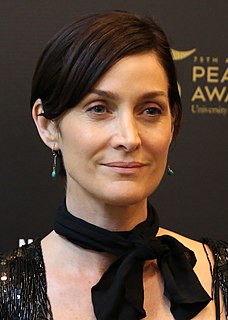A Quote by Gugu Mbatha-Raw
For film, I think because it's more detailed, and especially with historical material, you really have to find the right projects. Speaking as a mixed-race woman, there aren't many historical stories about people like me. When people think of 'dual heritage,' they think it's a modern concept, but really it's not.
Related Quotes
I think it's really hard to find a good women's magazine, and I like that Glamour is way more about what you want and not what your man wants. I don't really know what it's like to be a woman yet, so I wouldn't have too much insight, but I guess it would be a bit interesting to have more of that granny style in there. Because I think it should be easier for women to feel like they don't have to be conventionally attractive or think of flattering clothing before they think of fun clothing.
I think it was the same thing that really makes the premise of this film [Women of Wall Street] compelling: the idea of a woman negotiating issues around power and money, which are two things that have historically been denied to women. To see a woman operate successfully, but still find those barriers a result of that historical and systemic bias in her pursuit to the top, is a really interesting struggle.
It [Hancock] happens to be a big budget film and big star like Will Smith, but it actually has a lot of weight to it. But it was very smart and very intelligent and had this kind of historical element to it that I was fascinated by. It's not silly. It's not stupid. It's fun, but I think it's smart. I think Akiva [Goldsman] writes really interesting material and there you have it.
I think we as people struggle for what is meaningful in our lives, and I think that modern, contemporary life is as easy as it's ever been, for many, many people, and the amount of physical exertion, for most people, is less than it's ever been. I think that there is something about the ritual of making things more difficult that people find meaning in.
I think what Laura Linney was saying about teaching her all the lessons as a child actor, right, that's a whole ball of wax. That's a really mixed bag of stuff. I look at so many people that I knew personally or didn't know personally but who have ended badly, have died young, have been destitute - there are a lot of bad child-actor-gone-wrong stories, a very high percentage, but I think the thing about it is that a lot of those are Hollywood stories, and you don't have that same kind of a thing in the theater.
I do love Instagram, and my kids are with me, like, 24-7, so it's inevitable that they'll be on there. And honestly, I know it sounds weird, but I look up people all the time on it. Because I find people so interesting, and I'm curious about them. It's a gateway to meet new people. I think the whole concept of Instagram is really cool.
The more foreign to me, to my existence, to your core existence, the more foreign the foreign language, it's really moving to me to think, to get to experience my own story crossing those boundaries. To have that experience that I so cherished as a reader. I can't believe this. To me, it's really nice because that would be a thing where I'm like, "There may be lots of Jews in my work. I'm not writing stories for Jews. I'm telling stories about people, and Jews are people, too."
I think me, Sean Bonnette and Laura Jane Grace, and a lot of the bands people feel that way about, we're just really honest in our lyrics. I think we got really lucky in that the right kind of people who would appreciate that heard us at the right time, because there are plenty of people that are honest in their lyrics.



































